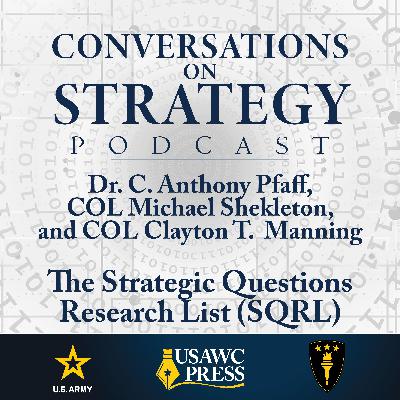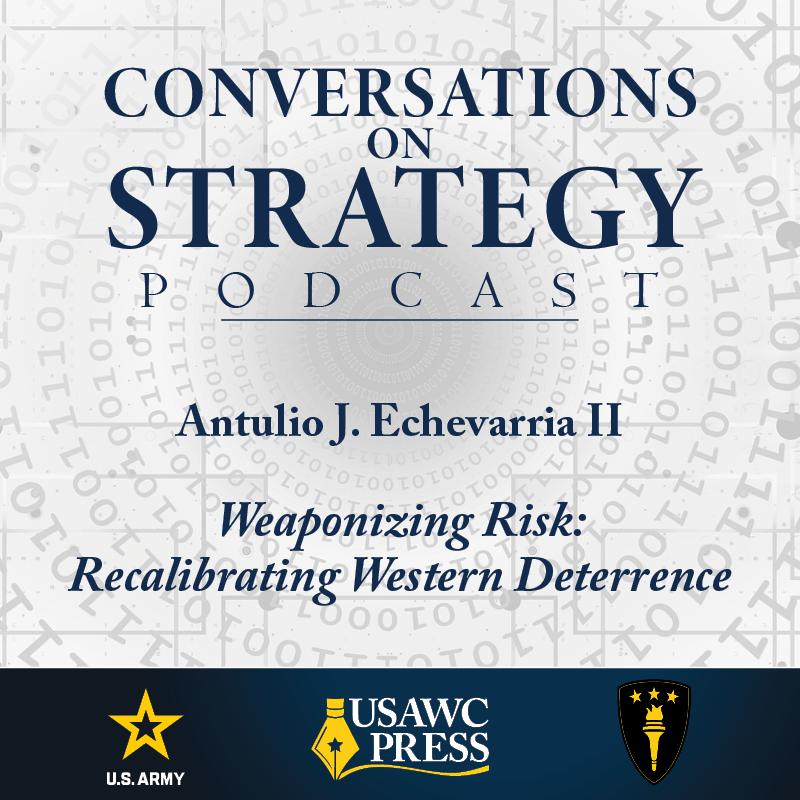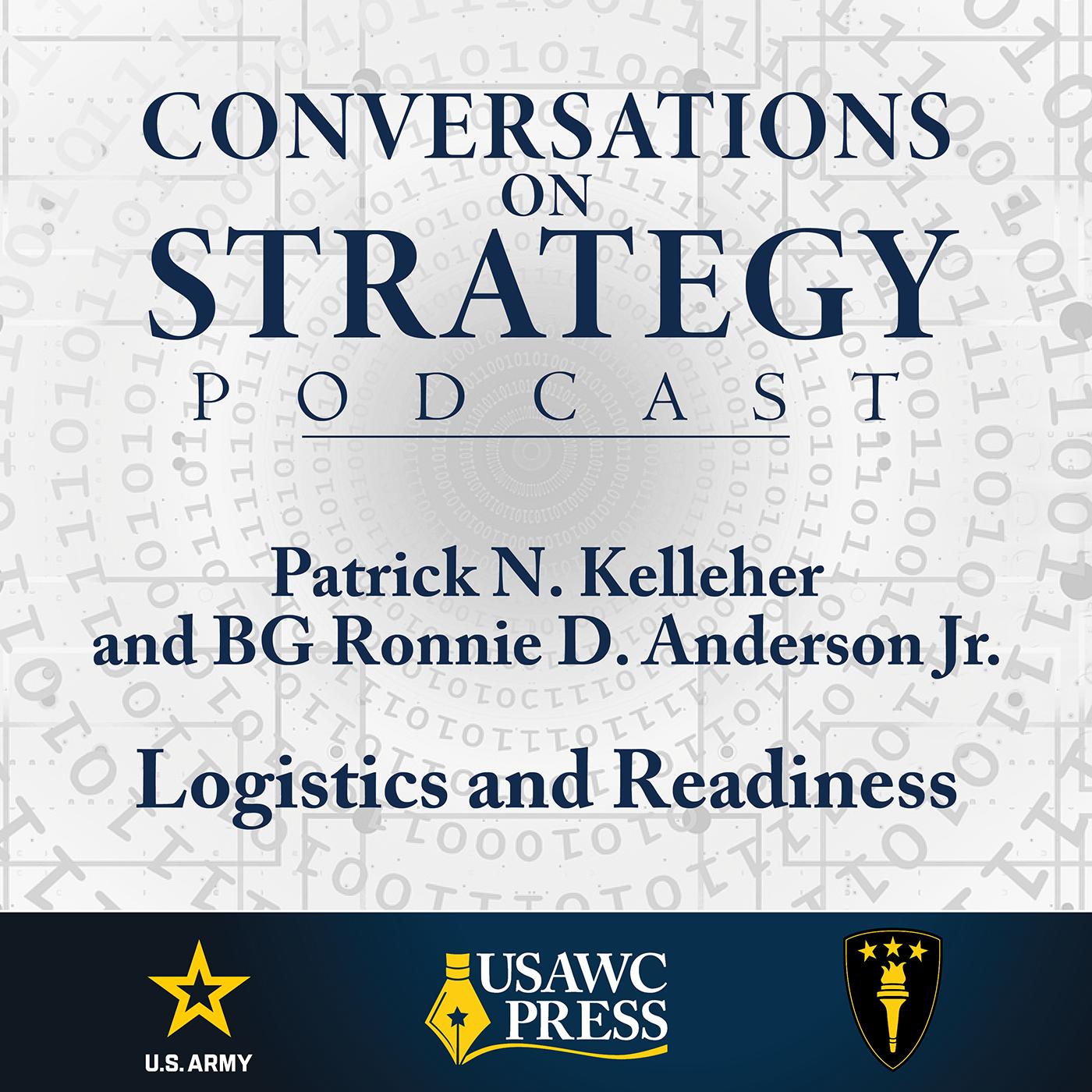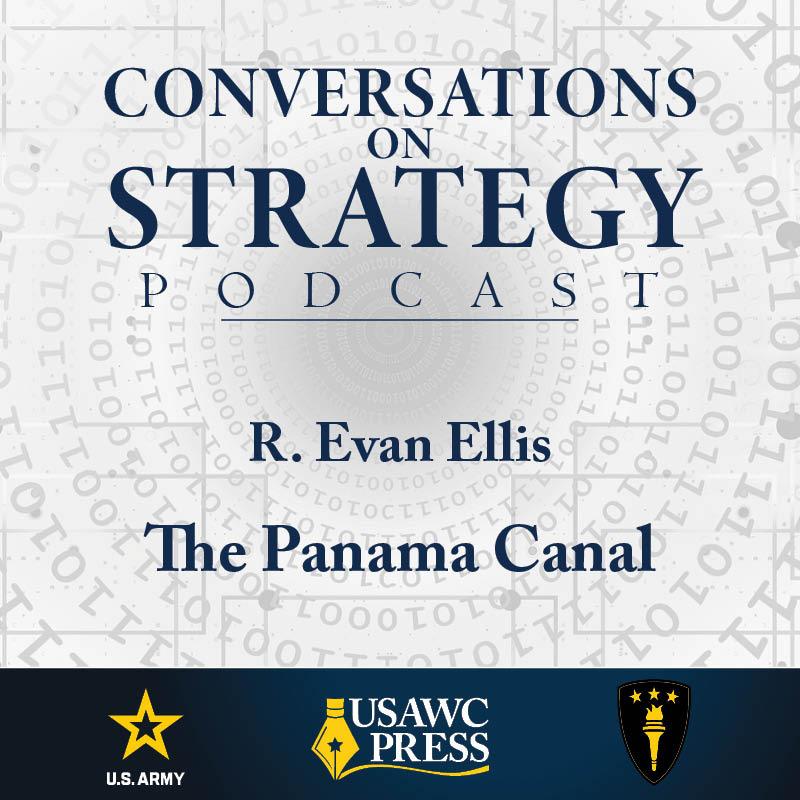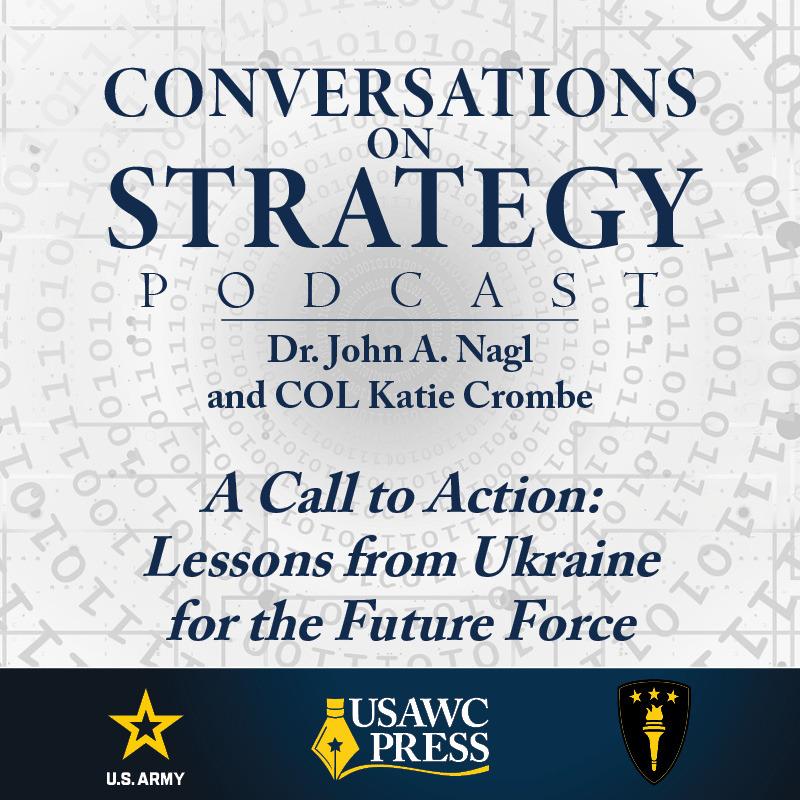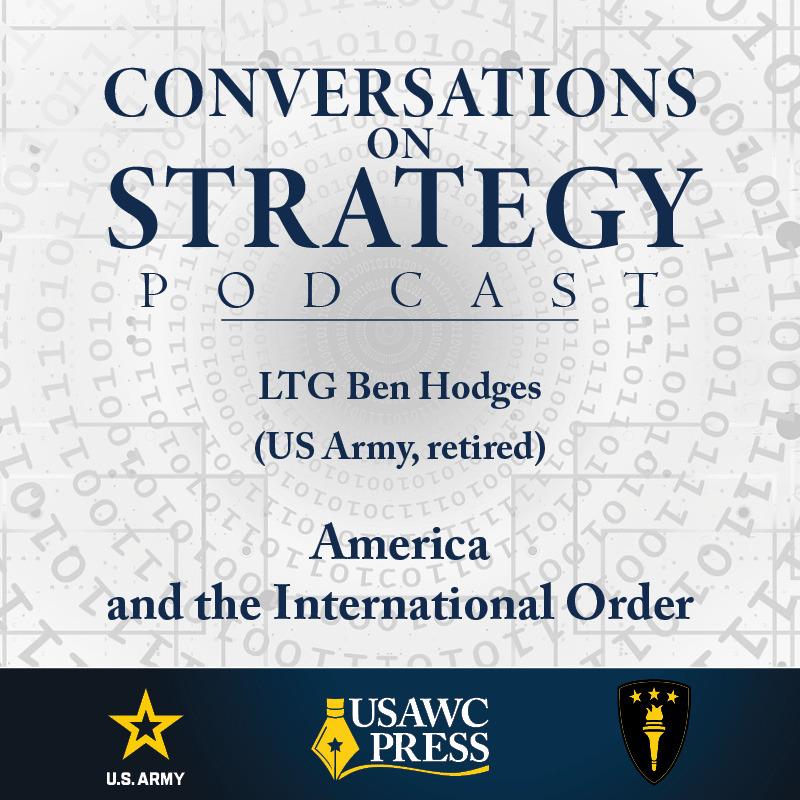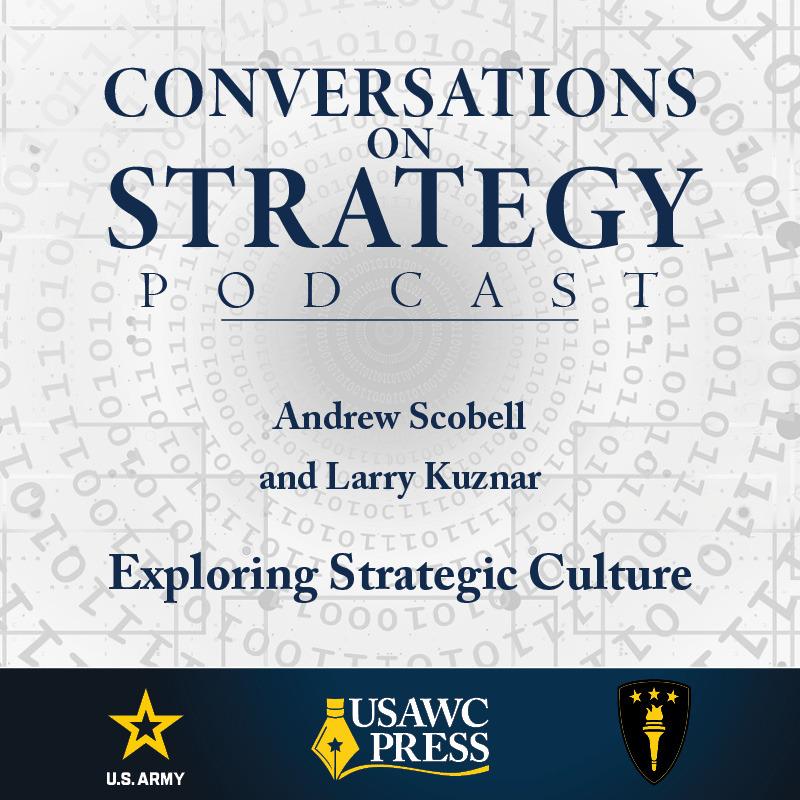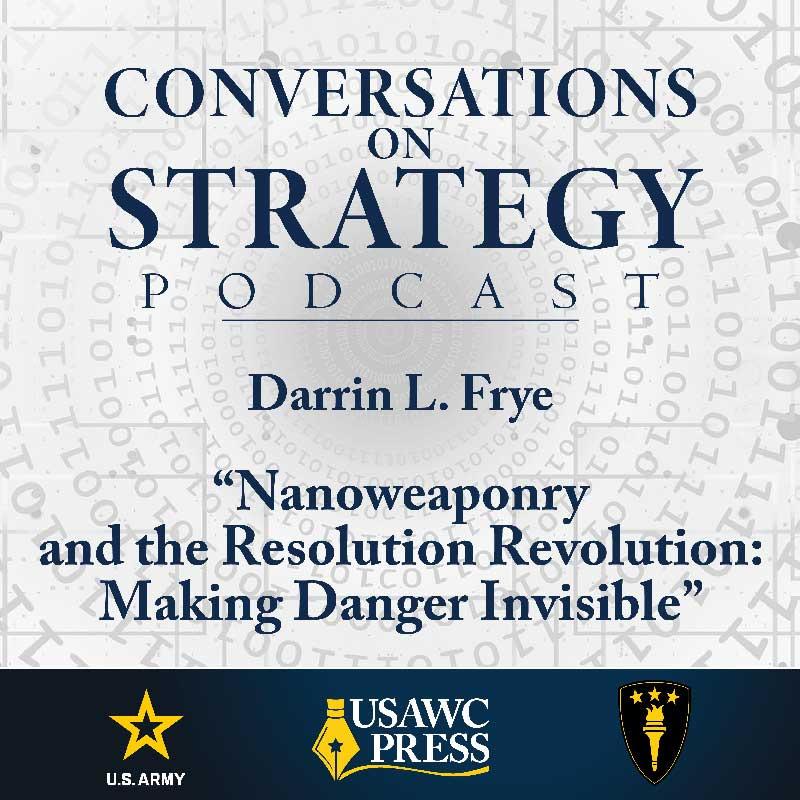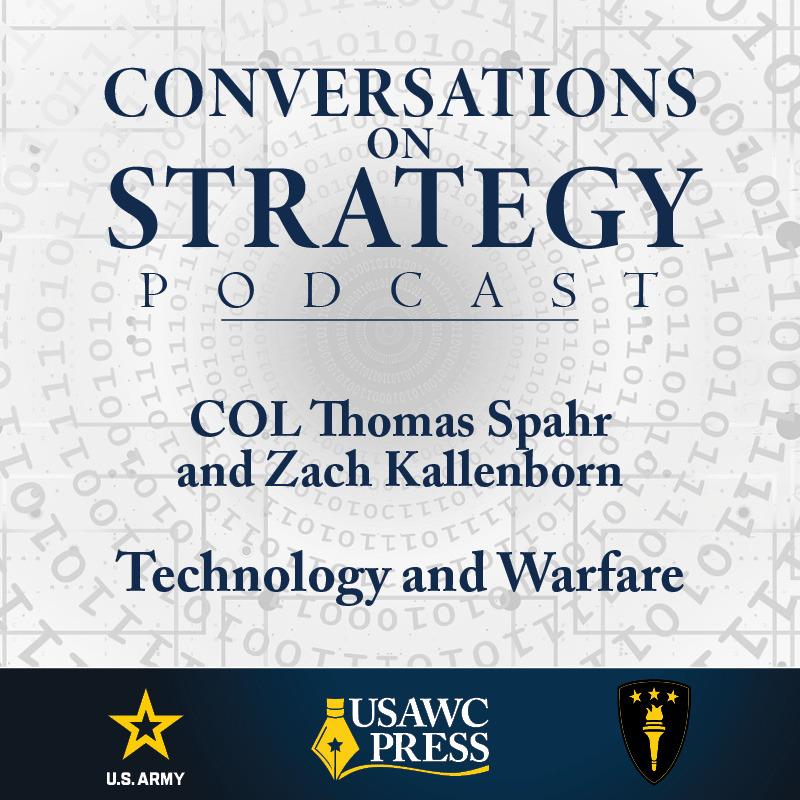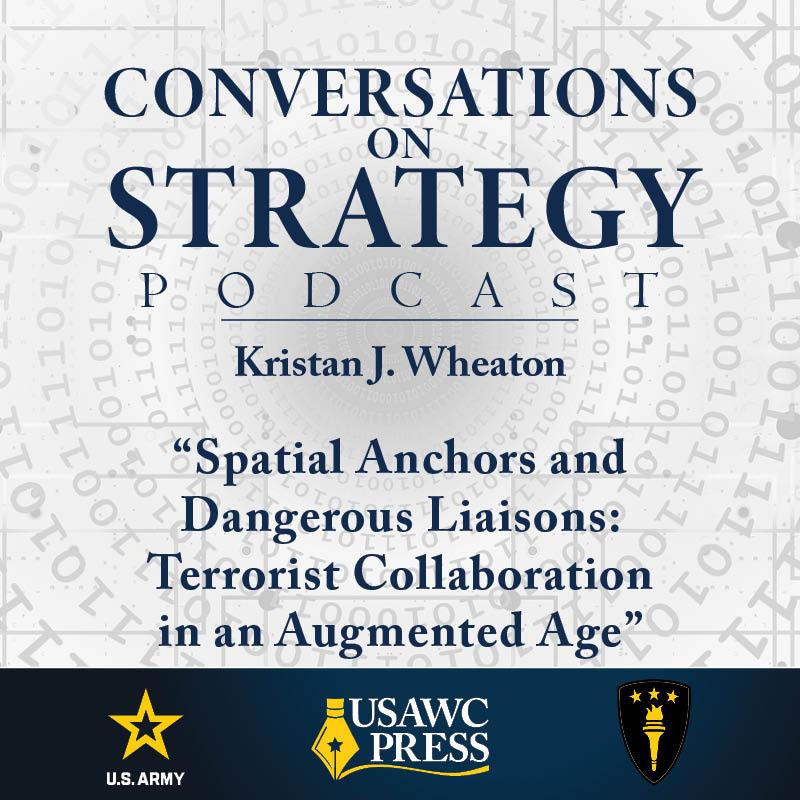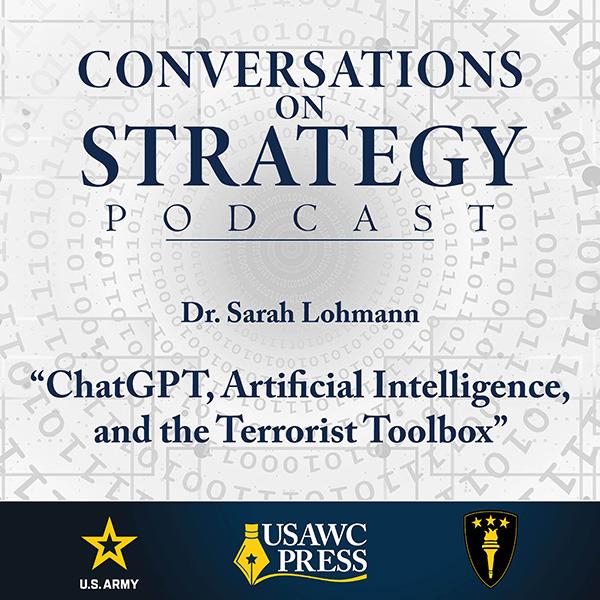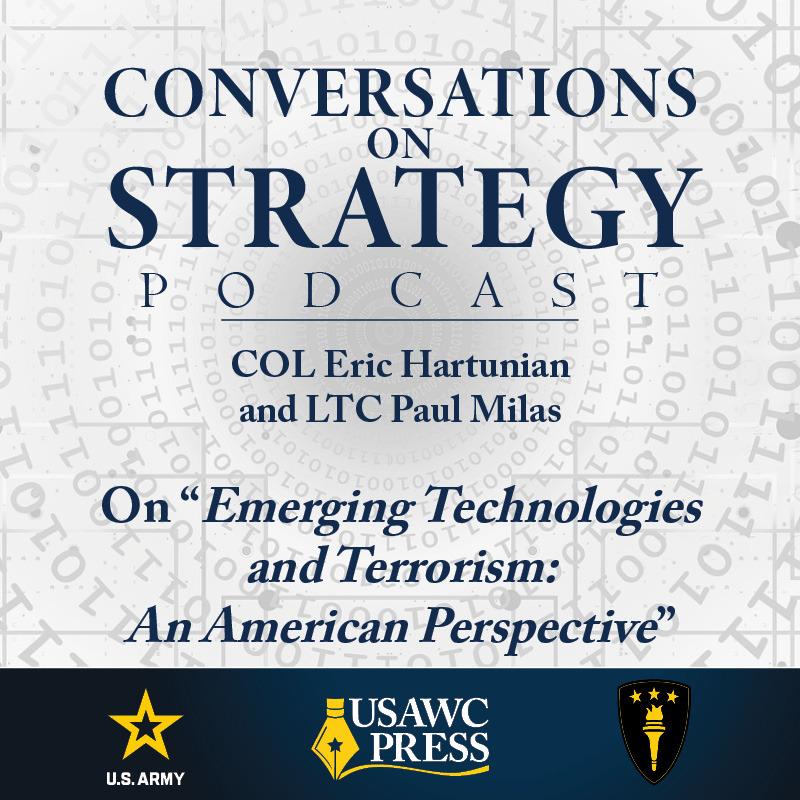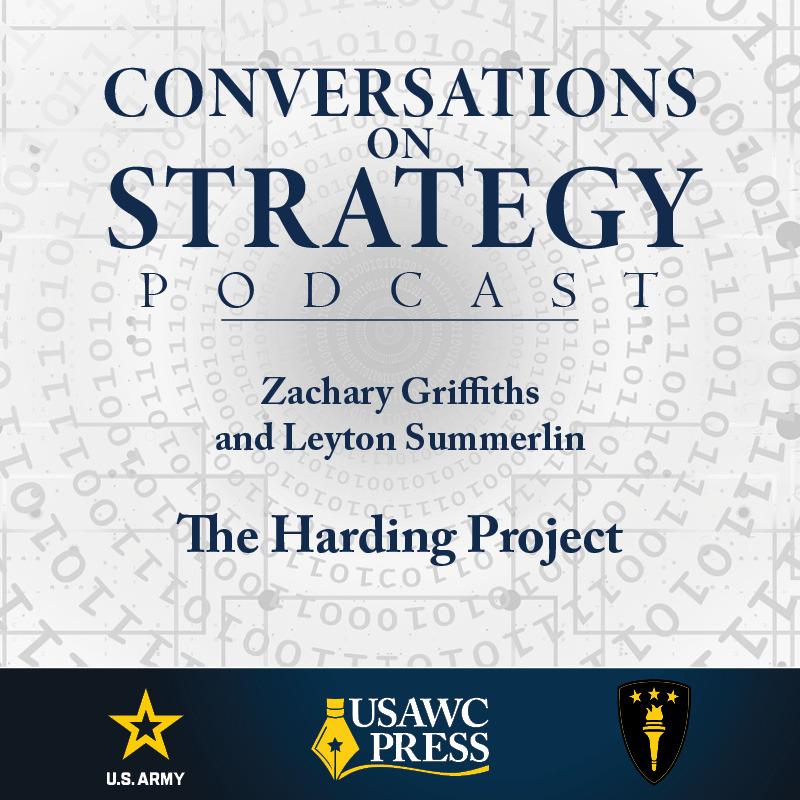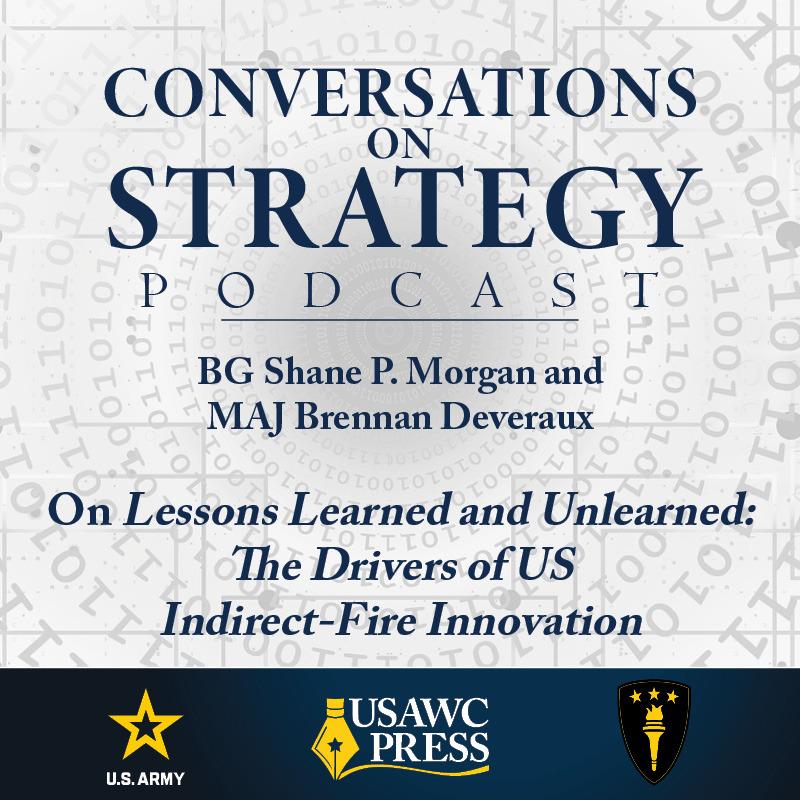Conversations on Strategy Podcast – Ep 58 – Dr. C. Anthony Pfaff, COL Michael Shekleton, and COL Clayton T. Manning – The Strategic Questions Research List (SQRL)
Description
In this episode, Major Brennan Deveraux interviews Dr. C. Anthony Pfaff, Colonel Michael Shekleton, and Colonel Clayton T. Manning on the recently published Strategic Questions Research List (SQRL). They discuss the contents of the SQRL, how it differs from previous years’ compendiums to the Annual Estimate of the Strategic Security Environment, and how it can be used by students during their research.
Keywords: Strategic Questions Research List (SQRL), research, academics, research questions, sponsors, Strategic Research Requirement
Major Brennan Deveraux
Hello, you are listening to Conversations on Strategy. The views and opinions expressed in this podcast are those of the guests and are not necessarily those of the Department of the Army, [the] US Army War College, or any other agency of the US government.
My name is Major Brennan Deveraux. I work at the Strategic Studies Institute (SSI). I will be the guest host for this podcast on our Strategic Questions Research List (SQRL) and all associated podcasts for the Strategic Estimate.
I’m joined today [by] three guests. The first is Dr. [C. Anthony] Pfaff, the director of the Strategic Studies Institute. The second is Colonel [Michael] Mike Shekleton—my boss—the director of the Strategic Research and Analysis Department (SRAD) here at SSI. And then, Colonel Clay Manning, a professor at the US Army War College’s School of Strategic Landpower (SSL), as well as the director of the Strategic Research Requirement (SRR).
Dr. Pfaff, I’m going to start with you today. The Strategic Questions Research List, also known around the War College as the squirrel (SQRL)—fun name—can you tell me a little bit about what it is, why it’s important, and why we’re having this conversation today?
Dr. C. Anthony Pfaff
It’s a great question. And I guess [I will share] a little bit about the history of the name: In the before times, we often relied on something called the Key Strategic Issues List, also known as the KSIL, that was both loved and hated by various entities, both here at the War College and abroad. Part of the problem with the KSIL was that it wasn’t well aligned in any given year with the requirements of the service and of DoD (Department of Defense) in general. So, it had gotten abandoned, and we had started using just the Strategic Estimate, but then we kind of discovered that we still weren’t properly aligned with the field. And so, the SQRL became our effort to do that, as we would reach out to major commands, agencies, and others who we would consider our stakeholders, and ask them what their resource priorities are.
We came up with the name because Research Questions List is RQL (Urkel), and that was right out. Strategic Research Questions List was SRQL (circle), and we certainly don’t want any more of those around here. Then, it was Strategic Questions Research List, which is a little awkward to say out loud, but it does form the acronym SQRL, and chasing squirrels is always fun.
That’s how we got the name. And, it’s our effort to be as aligned as possible with the national security challenges that we’re facing in ways that are interactive in using it. Unlike the KSIL, [in] which you sort of drop the [questions] on the researchers, who are the students, this is [an] interactive process where we help shape the questions so that they’re easier to use and then have a mechanism and a venue for providing the feedback from the research back to the field. That’s what we’re trying to do here.
Back over to you.
Deveraux
I like the name. I think it’s catchy. It’s easy to remember. Although, as you recall, I was very nervous the first time we said it in a big meeting and made sure I kept saying Strategic Questions Research List.
Quick follow up for you, sir, on the SQRL. Who’s it for? Is this just a War College product, a PME (professional military education) product? Who are we getting this out to? And are the sponsors, those customers, are they looking for anything specific? Are they looking for giant theses? Strategic long papers? Does that vary by command?
Pfaff
We’re trying to be as flexible as possible. So, there’s room for all the above that you just talked about. Now, in some cases, [with] these questions, there’s not a lot of research behind them, so there’s the opportunity to do some groundbreaking work. That’s going to take longer. That’s also part of the interactive process is that we help build expectations, both for the sponsor and for whoever takes on the question. There may be some things that take a while that require the full year or so to get done. However, what we got this year was a clear demand signal from the field for shorter turnaround things and responses. And so, we do have some formats—that, for those of you who take on these questions, we’ll provide you—that allow you at least to get an initial response out back to the sponsor in order to, kind of, fill that need, particularly where there is already a lot of research already done.
Now as far as who it’s for, pretty much anybody who is in the community that does research for the DoD, these are questions that they could take up, and we hope to get this promulgated out to a lot of those agencies. However, a major focus is getting [the questions] out to the student community so that they get to do two things. One is that just reading the list, you get a feel for what the DoD cares about right now, which may not only inform the [kinds] of projects you take on while you’re here but should [also] inform how you interact with your other courses.
So, a short response here to wrap it up [is], basically, it’s for anybody who can use it. If you do use it, we would just ask that we are also included in how you provide any feedback to one of the sponsors.
Deveraux
Great, thanks. I’ll transition over to Colonel Shekleton. We had questions last year—in fact, we had a bunch of questions last year. We didn’t have the catchy name. That’s not all that’s changed. Can you talk to us about the shift in how this product has grown from last year’s version to this year’s version?
Colonel Michael Shekleton
Absolutely, Brennan, Thanks for that question.
Last year we had 101 questions. This year we have 100 questions. So, at the surface level, it may look very similar. Where the big change is, is [that] last year we had 11 organizations that provided questions; this year we had 43. And so, there’s a couple of ramifications from that. First off, with having that many organizations but the same [number] of questions, it means that what we’ve got from these 43 different organizations are their top two or three or so priority questions. And so, in other words, the command was able to put their thumbprint on, “Hey, we would love if the War College and—more broadly, the research community—could look at this challenge, look at this issue.” The participation and the focus [is a big difference] that really marks this year’s SQRL [with] the KISL of years past.
The range of organizations that provided us questions include the Headquarters, Department of the Army (HQDA), and so, most of the principal officials at HQDA provided questions. We also got [questions] from the four-star Army commands, the Army service component commands, the combatant commands, as well as a handful of other Joint and Army commands. We think we have a really good range of organizations that provided questions.
What this now affords to the students and the faculty is that most of them should be able to see themselves in the SQRL, whether it’s [that] they’ve got relevant experience from previous assignments that allow them a unique window or insight into trying to address the question and provide recommendations, or, it may align with a diverse range of professional interests. We think we have a pretty good starting point to help facilitate research over the next year.
Deveraux
As we’re doing the research, whether that’s a faculty member, a student, or to the earlier point, just a[n] interested Defense Department researcher, someone who just wants to tackle one of these problems, is there any sort of feedback loop? How are we getting research back to those customers? We talked about this being an iterative process when the questions are coming in. Are we iterating continually as we’re working through this? [Are] there opportunities for that dialogue?
Shekleton
Brennan, absolutely.
Prospective researchers can reach out to either myself or to you. For those who are listening to this, if you look at the back of the Strategic Estimate, on the back cover it’s got a list of the entire team that contributed to the Estimate, whether as an author or [someone] helping to put it together, and you’ll find [Major Deveraux’s] and my name, Colonel Shekleton, on the back. And so, for those of you on the DoD network, you’re able to reach out directly using the global address list.
For those who may be at an academic institution or somewhere else where you don’t have access, there’s an ability on the Strategic Studies Institute website to write to the Institute. And, that e-mail traffic would be funneled to us, and then we can link you up with the command and, specifically, the point of contact (POC) for the command’s question.
We collected these questions over the past sev

